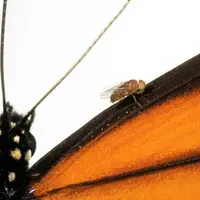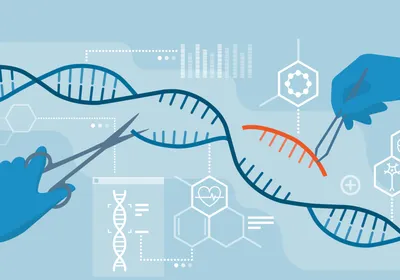ABOVE: A genetically engineered fruit fly sits on a monarch wing.
JULIANNE PELAEZ
Monarch butterflies (Danaus plexippus) and some other insects deter predators such as frogs or birds through eating milkweed, which contains the toxin ouabain. Resistance to ouabain has evolved many times, but it’s not found in all insects. A team of researchers led by Noah Whiteman at the University of California, Berkeley, edited the genome of fruit flies (Drosophila melanogaster) to allow them to safely eat the plant too. The findings were published in Nature yesterday (October 2).
The team made multiple CRISPR-Cas9 edits to the Atpα gene, which codes for a sodium pump subunit. Normally, ouabain works by blocking this pump, throwing off potassium and sodium gradients in the cell and overstimulating the heart in some animals. (If humans ingest too much ouabain, they can die from cardiac arrest.) Monarchs and other insects with particular variants in the ...





















